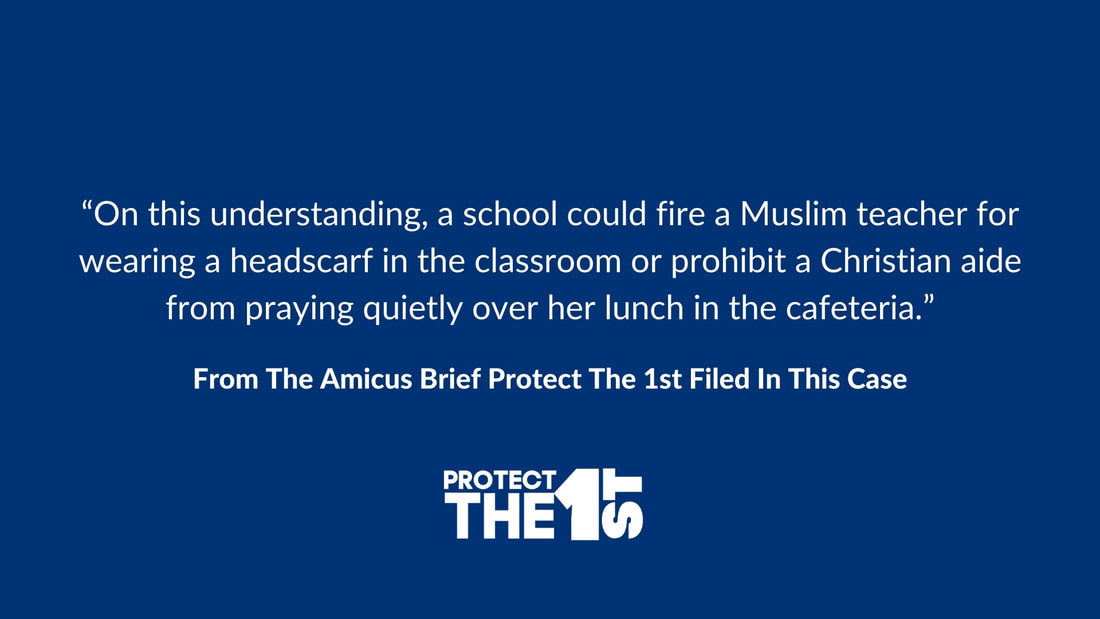|
Kennedy v. Bremerton School District The Supreme Court’s 6-3 majority opinion in favor of the right of Bremerton High School football coach Joseph Kennedy to pray after games on the 50-yard line is big win for religious liberty.
The issue is important because it involves how public institutions should manage the balance between the First Amendment’s guarantees of the free exercise of religion and speech against its prohibition of the establishment of religion. For decades, under the Lemon test, religious expression had come to be treated as radioactive material to be handled with an iron apron and tongs. The majority opinion states: “Both the Free Exercise and Free Speech Clauses of the First Amendment protect expressions like Mr. Kennedy’s. Nor does a proper understanding of the Amendment’s Establishment Clause require the government to single out private religious speech for special disfavor. The Constitution and the best of our traditions counsel mutual respect and tolerance, not censorship and suppression, for religious and nonreligious views alike.” The majority rejected the idea that the prayer constituted government speech merely because Coach Kennedy was a government employee. “When Mr. Kennedy uttered the three prayers that resulted in his suspension, he was not engaged in speech ‘ordinarily within the scope’ of his duties as a coach … He did not speak pursuant to government policy. He was not seeking to convey a government-created message. He was not instructing players, discussing strategy, encouraging better on-field performance, or engaged in any other speech the District paid him to produce as a coach.” This logic led the Court to adopt a view that is almost a verbatim quote from the amicus brief Protect The 1st filed in this case. The court ruled that if the standard sought by the school district held, then: “On this understanding, a school could fire a Muslim teacher for wearing a headscarf in the classroom or prohibit a Christian aide from praying quietly over her lunch in the cafeteria.” Quoting the First Amendment – “Congress shall make no law respecting an establishment of religion, or prohibiting the free exercise thereof; or abridging the freedom of speech” – the majority opinion concluded: “A natural reading of that sentence would seem to suggest the Clauses have ‘complementary’ purposes, not warring ones where one Clause is always sure to prevail.” Protect The 1st applauds the Court for standing up to protect private speech and the free exercise of religion. Comments are closed.
|
Archives
June 2024
Categories
All
|
ABOUT |
ISSUES |
TAKE ACTION |



 RSS Feed
RSS Feed